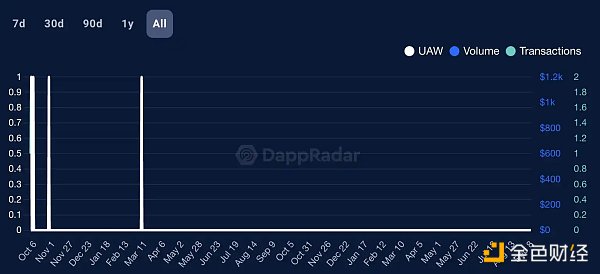EOS founder BM’s platform Voice announced shutdown a four-year, $300 million attempt
EOS founder BM's platform Voice announced a $300 million shutdown after four years of operation.From transforming social media to an NFT social platform, Voice, backed by EOS parent company Block.one and receiving up to $300 million in funding, ultimately couldn’t escape the fate of being shut down. On September 14th, Voice announced that it will cease operations in a few months and will soon launch a service that allows NFT migration to self-hosted wallets.
“We believe that using the remaining resources to optimize the platform’s shutdown process is in the best interest of Voice and its community.” Due to the ongoing uncertainty in the cryptocurrency and NFT markets, Voice will gradually shut down its operations in the coming months. Currently, new user registrations and the trading market have been disabled. In the next few weeks, Voice will launch a service that allows NFT assets on Voice to be migrated to EOS, Polygon, and Ethereum, while existing users’ assets will be retained until December 31, 2024.
Voice is a decentralized social platform launched by EOS founder BM in June 2019. It aims to compete with social platforms such as Twitter (X) and Facebook and is referred to as an “application that will change the industry landscape”. $150 million was invested in it.

- LD Capital Bluzelle Short-term Funding Analysis
- Is decentralized exchange (DEX) legal in China?
- A discussion on whether Friend.Tech is a flash in the pan or the future of SocialFi
In order to successfully launch Voice and promote it better, on the one hand, Block.one paid a $24 million fine to the SEC, preparing for the upcoming launch of Voice in compliance; on the other hand, BM spent $30 million to purchase the domain name Voice.com, becoming the largest publicly disclosed domain name sales record in history. He believes it is “expensive but valuable”.
In addition to the large amount of funding, Block.one also bought 3.3 million EOS RAM at one time, making it the richest “landlord” of EOS network resources, occupying only 30% of the EOS network memory. This also indirectly shows BM’s expectation for Voice to become the largest DApp application on the EOS network.
Half a year later, as Voice separated from its parent company and became an independent institution, Block.one invested another $150 million, including $100 million in cash and $50 million in intellectual property assets. So far, Voice has received a total of $300 million in investment.
However, Voice has been controversial due to poor user experience, serious privacy issues, and other problems. BM’s “social dream” has once again been shattered, and he has also said, “Voice will not be seen as a platform that can give people freedom. No company or service can give people freedom, only by separating from technology can people be free.”
In May 2021, Block.one announced that Voice would be upgraded to an NFT-based social platform for emerging creators and planned to launch in the summer of 2021. On this platform, Voice users will be able to freely create various formats of digital assets and easily buy and sell them. At the same time, any user participating in the creation will receive royalty income. Block.one explained that the reason for the transformation was influenced by the company’s regulatory difficulties.
However, these changes did not improve Voice’s predicament. In the current downturn of the NFT market, even blue-chip NFTs are facing continuous declines in prices, transaction volume, and user numbers, and Voice’s on-chain data is even more subjective. According to DappRadar data, since the transformation, Voice has only had a few hundred or thousand dollars in trading volume, especially after May 2022, there has been no transaction volume at all. In addition, looking at the interaction of Voice’s X official account, the number of retweets and likes of tweets has mostly been in single digits over the past year. Therefore, the shutdown of Voice is not unexpected.

From a high-profile debut to being ignored by everyone, BM’s another recommended project, which cost more than 300 million US dollars and took over four years, has once again ended in failure.
We will continue to update Blocking; if you have any questions or suggestions, please contact us!
Was this article helpful?
93 out of 132 found this helpful
Related articles
- Analysis of the current status of generative AI usage by consumers
- a16z The Most Basic and Feasible Password Security Configuration Solution
- Exploring the true potential of RGB What possibilities are there?
- Interpreting the Economic Impact and Risks of the Launch of the Cosmos Liquidity Staking Module from Three Perspectives
- Milady, the fog of civil war, founders or indirectly serving US intelligence agencies.
- Review of Permissionless II SocialFi Transforming Social Into Money
- The Stablecoin Landscape after MakerDAO’s EDSR Transformation, Response, and Opportunities






